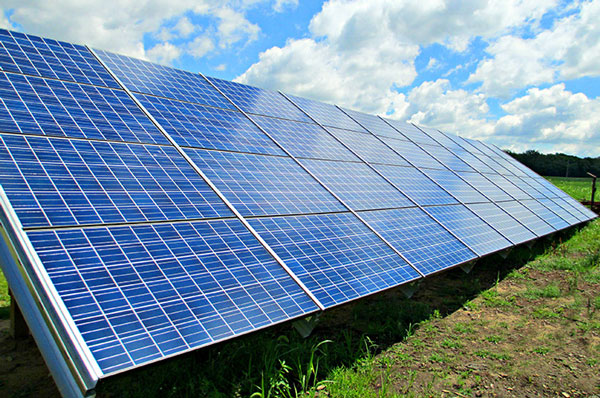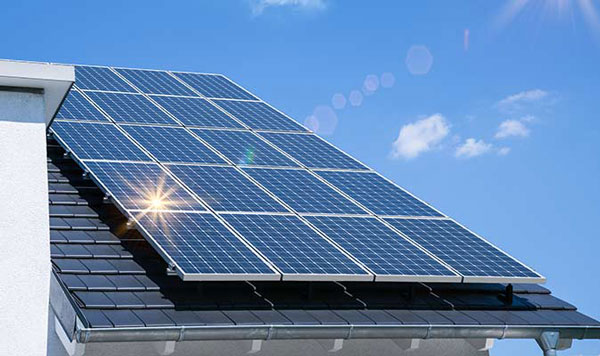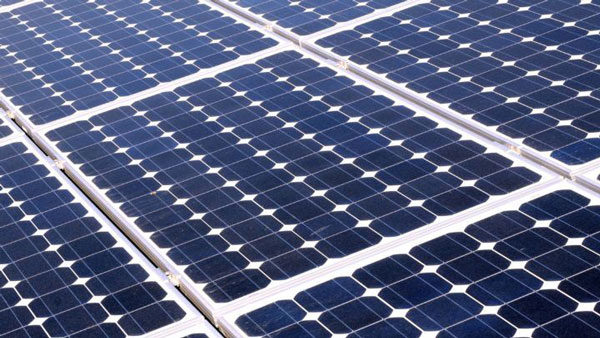Adopting solar energy reduces household electricity costs by up to 50%, increases property values by approximately 4.1%, and cuts carbon emissions, significantly contributing to environmental sustainability.
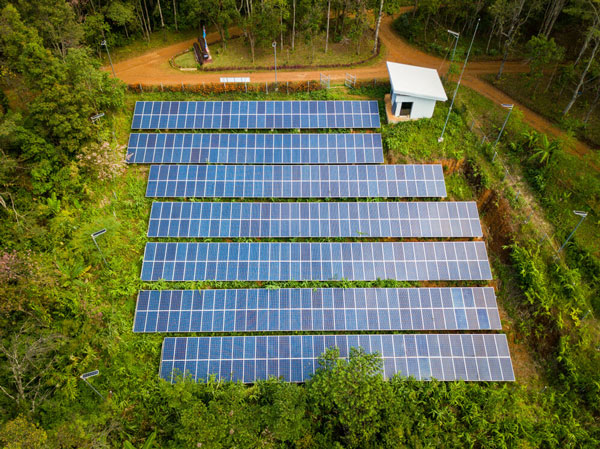
Reduce Electricity Bills
Solar Energy substantially reduces household costs due to the fact that the owners of houses can produce their own electricity and consume much less grid electricity. In fact, an average system’s family can save from $10,000 to $30,000 in their life. Indeed, the one-time payment for the system and it’s the installment is usually high, but in the long run, the households save a substantial sum and therefore the sum goes back.
Advantage of peak sunlight hours
It is during peak sunlight hours that solar panels work by far the most effectively. Interestingly, this is also the time of the day when the overall household electricity consumption reaches its peak, meaning that this is also the time when the electricity is the most expensive. The family produces the electricity at the time when they would otherwise purchase it at peak rates. In addition, any extra electricity that is produced and that could not be consumed during peak funds can essentially be sold back to the grid and homeowners are either credited with the money on their electricity bills or the grid companies pay them the difference in money. In some places, this system is widely promoted and known as net metering.
High Demand Reduction
Solar panels are beneficial for reducing the amount of household electricity use at all times of the day, but, clearly, the effect is the most pronounced during the times of the highest demand. Thus, the substantial disadvantage of high electricity bills during the hot summer months is also resolved as it is the time of the year when solar panels are the most efficient. Households also become less dependent on grid electricity and strain the grid less, hence lowering the risk of blackouts, and make any grid extension easier and less expensive.
Tax Incentives and Solar Panels
Federal governments actively incentivize the population to install the solar system. One of the most well-known ways the U.S. government does it is by offering a 26% tax credit on the cost of the installation with the help of the Solar Investment Tax Credit . State governments may also offer rebates and credits to promote the use of solar energy.
Improvement of Newer Solar Systems
The newest systems and later upgrades also allow for a much more efficient production of electricity. They would include modern systems, which are equipped with smart technology that not only produces electricity efficiently but learns to produce more and adapts to the energy systems of each individual’s home
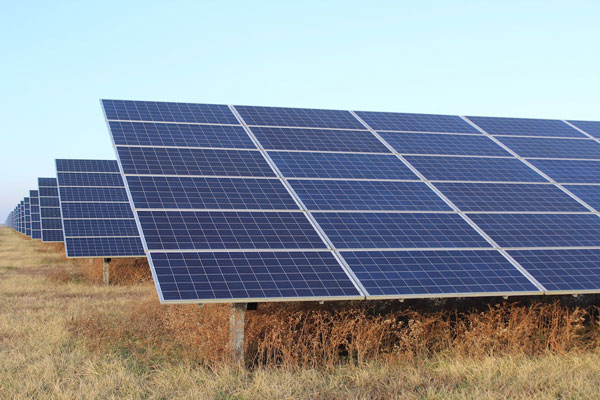
Property Value Increases
Due to the fact that homes equipped with solar energy systems can highly benefit from them and their property value significantly increases, we can make the statement that installing solar panels is viewed as an upgrade or a valuable addition to a home, much like renovating a kitchen or an addition of a room. In fact, the study by Lawrence Berkeley National Laboratory claimed that homes with solar panels sold, on average, for about 4.1% more than homes without solar systems.
Attractive to Eco-conscious Buyers
In the contemporary and often harsh and dry housing market, eco-friendly homes are not just a trend, they became a preference. Solar panels become a symbol of a householder or owner’s commitment to sustainability, marking it as environmentally friendly. It becomes a valuable asset for many homeowners who try to contribute to preserving the environment and doing their bit to reduce harmful greenhouse gases. Selling a home often becomes quicker and a lot easier when people choose green housing projects.
Potential for Increased Market Value
In regards to pricing and the housing evaluation, it is known that homes with solar installations significantly increase both the fixed and the variable costs. Statistically, real estate agents make it a habit to exaggerate the presence of solar systems in homes and use it as leverage. It means that to establish your home’s price, the agent might often suggest exaggerating the role of solar panels and ending up with substantially higher asking prices. It is a highly justified leverage as selling solar-powered homes in highly competitive markets has been proven to go a lot faster.
Reduced Utility Costs Make Homes More Attractive
Monthly electricity cost runs much lower in homes with solar panels, and the buyer has this information in mind ahead of the purchase. They provide full financing terms to the buyer, offering a lower rate due to the lower cost of payments most buyers consider on the long-term basis. On real estate aggregation websites, service offers the option of filtering owners who have actively put their property for sale, and the presence of solar panels is seen as a strong selling point. Buying a home becomes an ordeal that pays for itself, resulting in a high influx of scalable market demands that drive property yardage and value uphill.
Solar Panels and Green Mortgages
There are institutions that distribute so-called “green mortgages,” which provide outstanding terms or offers on homes. If the homeowner has solar panels or other environmentally friendly installations, they may qualify for this type of mortgage arrangement, which could potentially benefit them. For many, saving money translates directly to the environmental commitment that solar installations entail.
Contribute to a Green Environment
The technology of solar energy is a renewable, one of the cleanest sources, and adopting it has a considerable impact by reducing carbon footprints. This helps many households save on electricity and even sells excess power. Residential solar panel systems can gather three to four tons per year, which is like planting more than 100 trees annually. The latter benefits the environment by promoting the growth of something that reduces carbon footprint.
Reduction of green house gases
The significant benefit brought by using solar panels is reduced greenhouse gases. By adopting this technology, people have shifted to the use of electricity and not fuels, which produce harmful gases and is a leading factor in the increased global warming. Solar panels produce electricity without releasing gases. concentrating solar power produces while shifts becomes hot and it not produce gases. This reduces our carbon print when we use the technology.
It directly contributes to increased demand for renewable energy when homeowners install solar panels. The demand is transmitted into widespread availability and higher quality at lower costs. Additionally, it encourages investment in renewable energy by research, which promotes greener technological improvements. When the community and government activities adopt clean energy, it helps conserve the environment.
Decreased emission of air pollutants
Solar panels reduce air pollution because they replace electricity from burning fuel like coal, oil, and natural gas and hell in reducing air pollutants.
Generating power by burning fuel releases harmful pollutants into the air. Acids, particulate matter, sulfur dioxide, and nitrous oxides get into filtered oxygen, which humans inhale reducing air pollution. Both respiratory problems and other heath problems. It comes from reduced dependence on power generated by burning fuels.
Reduced use of water
Solar panels require little or nor water for the production of electricity in comparison to other clean energy technologies. Concentrating solar power systems need water for wet-cooling purposes with solar cells production using water for cleaning, which is minimal.
Development of Biodiversity
It makes the most of the land and supports the growth of wildlife for solar farm is necessary for to develop biodiversity. There are several solar installations, which make use of the land by incorporating agricultural activities, such as farming or the growth of natural vegetation. The growth of both animals does not require cutting of trees but grows crops that are necessary feed. This reduces the need to have separate installation of crops and electricity.
Energy Independence
People who purchase a home solar system gain energy independence and become partially or fully protected from the energy utility grid. Such a system may be advantageous not for the least factor for the opportunity to have control over electricity costs and permanently fixed energy costs. One of the main benefits of owning a solar system is minimal reliance on fossil fuels and reduced impact on greenhouse emission. In addition, property owners become less dependent on the volatility of unreliable foreign energy markets.
Control Over Electricity Costs
Having ownership of their own solar electricity eliminates the issue of unexpected utility increases in people’s electricity bills. In the United States, for example, the cost of electricity has increased by 3% on average over the past 10 years. It provides people with minimized utility value with solar homes. The installment is a warranty that yearly utility increases will not happen.
Self-Sufficiency in Electricity Supply
Together with energy storage systems, home solar systems provide continuous energy throughout the whole day regardless of the current state of the utility grod. It is especially comfortable in the regions prone to quite severe weather or less advancement of the gird system. Individuals can be sure important issues like heating or refrigeration will be safe and they will always have light.
Reduced Dependence on Fossil Fuels
Solar energy and benefits that people may receive with home solar productions allow reducing the demand for energy from diverse kinds of fuel. Fossil fuels are subject to price volatility dependent on the constantly changing foreign energy market and country’s economy and politics. The reduced demand, in turn, also serves the stabilization of people’s own utility costs. On the higher level, by employing solar production, individuals support national energy security and lessen dependence on foreign fuels.
Greater Resale Value: Homes with Installed Solar Panels Resell Better
With installed solar power systems, homes become more modern and largely energy independent. Nowadays the demand for energy sufficiency and independence of power plants is increasing. When trying to resale a property with installed solar panels, the selling time of a house increases and the price also adds up some value.
Local Infrastructure Benefits of Solar Panels Ownership
By investing in a solar energy system and implementing it in property owners’ or company’s assets, they significantly reduce and lighten the pressure on the overall load on the current local grid. For example, technological improvement of the existent energy network may include the need to expand and renew the current gird system for a huge amount of cost in order to meet the general public’s ever increasing needs. With solar systems, the need to expand the grid is less evident, which means that utility companies are in a saving mode and network is less clogged and more reliable for public use.
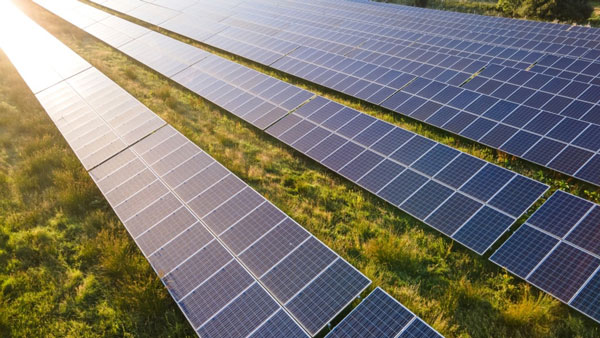
Low Maintenance Cost
Household applications of solar power are favored by many homeowners for their low maintenance costs. Such systems have substantially lower ongoing costs after installation, as they have few maintenance requirements. The reasons for this low requirement include their durability, simple cleaning needs, and the practicality of using solar panel monitoring systems to ensure efficiency.
Durability of Solar Panels
Solar panels can deal with most weather extremes, including heavy rain, snow, and high winds. Most manufacturers cover their products with a warranty of 25 to 30 years, so they can last long enough without significant deterioration. Overall, households can expect to have little use for repairs or replacements of their solar panels.
Cleaning Requirements
The central need for maintenance of solar panels is to keep them clean. In many areas, where heavy rains are not rare, it is cleaned by the precipitation. In other words, the only scheduled cleaning requirement is to rinse the panels with a garden hose a few times a year.
Monitoring Systems
The monitoring technology that comes with many modern solar systems allows users to observe performance in real time. If their system is not producing enough energy, they can identify and address the problem before it becomes bigger.
Component Replacement After 10-15 Years
As such panels do not require excessive maintenance over their life cycle, the only reasonably frequent task is to check the inverter, which may need to be replaced after 10 to 15 years. To compare, the only regular need for a generator is the daily need for fuel and the gradual breakdown caused by regular use.
Savings from Low Ongoing Costs
The practically nonexistent ongoing cost is a significant advantage of solar technology. The installation costs are apparent and have to be taken into account but are eventually paid off and exceeded by the savings from exploitation without further spending.

